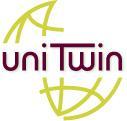 UNESCO – the United Nations Educational, Scientific and Cultural Organization (UNESCO) was founded on 16 November, 1945. For this specialized United Nations agency, it is not enough to build classrooms in devastated countries or to publish scientific breakthroughs. Education, Social and Natural Science, Culture and Communication are the means to build peace.
UNESCO – the United Nations Educational, Scientific and Cultural Organization (UNESCO) was founded on 16 November, 1945. For this specialized United Nations agency, it is not enough to build classrooms in devastated countries or to publish scientific breakthroughs. Education, Social and Natural Science, Culture and Communication are the means to build peace.
Today, UNESCO functions as a laboratory of ideas and a standard-setter to forge universal agreements on emerging ethical issues. The Organization also serves as a clearinghouse – for the dissemination and sharing of information and knowledge – while helping Member States to build their human and institutional capacities in diverse fields. In short, UNESCO promotes international co-operation among its 195 Member States and eleven Associate Members in the fields of education, science, culture and communication.
UNESCO is working to create the conditions for genuine dialogue based upon respect for shared values and the dignity of each civilization and culture. The world urgently requires global visions of sustainable development based upon observance of human rights, mutual respect and the alleviation of poverty, all of which lie at the heart of UNESCO’s mission and activities.
UNITWIN is the abbreviation for the UNIVERSITY TWINNING and networking scheme. The  UNITWIN/UNESCO Chairs Program was conceived as a way to advance research, training and program development in higher education by building university networks and encouraging inter-university cooperation through transfer of knowledge across borders. Since it was set up in 1992 the program has aroused great interest among Member-States.
UNITWIN/UNESCO Chairs Program was conceived as a way to advance research, training and program development in higher education by building university networks and encouraging inter-university cooperation through transfer of knowledge across borders. Since it was set up in 1992 the program has aroused great interest among Member-States.
Today 736 UNESCO Chairs and 45 UNITWIN Networks are established within the Program, involving over 700 institutions in 116 Member States, covering 70 disciplines.
There are presently 12 UNESCO Chairs in the field of Bioethics.
